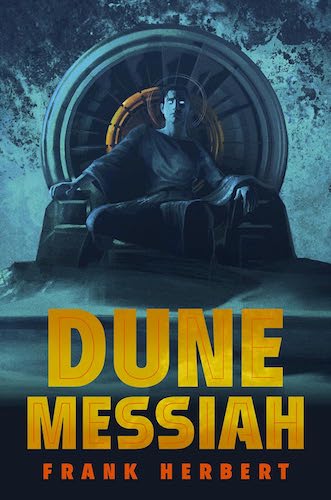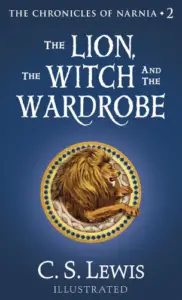Dune Messiah
Book Author: Frank Herbert
Summary reviewed by:
Terrence Timmons
Terrence Timmons
Analyst
Bachelor of Arts (BA), University Of California, Santa Barbara 2019
With over 4 years of experience as an analyst. Terrence Timmons is committed to analyzing summaries without compromising on quality.
Dune Messiah: Summary
"Dune Messiah," the second book in Frank Herbert's groundbreaking Dune series, plunges readers back into the arid and treacherous landscapes of Arrakis. Discover the price of power as Paul Atreides, now Emperor and the revered Muad'Dib, navigates the perilous currents of politics, religion, and prophecy. Ascend to the zenith of interstellar intrigue where Paul's foresight breeds both devotion and conspiracy. The narrative weaves through the corridors of power, revealing the burdens of a messiah and the fragility of a burgeoning empire. On Arrakis, where spice dictates the ebb and flow of life, Paul faces internal and external forces threatening his reign and the very fabric of his belief. "Dune Messiah" is not just a sequel; it is an exploration of the intoxicating, often lethal, dance of control and legacy, delivering a compelling chronicle that stands as a fulcrum of science fiction lore.
Spoilers (watch a short ad to reveal spoilers)
Dune Messiah: Genres
Fiction
Space Opera
Political Intrigue
Philosophical Fiction
Science Fiction
Adventure
Dune Messiah: Main Characters
Paul Atreides/Muad’Dib: A visionary emperor with a deep sense of destiny, burdened by his prescient abilities. His leadership is marked by a struggle with the moral implications of his rule over Arrakis and the universe.
Chani: Paul’s Fremen concubine, embodying the strength and spirit of the desert people. Her loyalty and love for Paul illustrate the personal sacrifices entwined with their shared destiny.
Princess Irulan: A royal historian and Paul’s wife in name only, who grapples with her sidelined position in the empire and her unfulfilled desire for power and recognition.
Stilgar: Fremen Naib (leader) and close ally to Paul, representing the traditional ways of the Fremen and the challenges of adapting to the new order under Muad’Dib.
Alia Atreides: Paul’s sister, a precocious and powerful figure, struggling with her own identity and the possession by ancestral consciousnesses, reflecting the Atreides family’s complicated legacy.
Dune Messiah: Themes
Power and its Consequences: The novel explores the burdens of leadership and the isolation it brings, illustrated by Paul’s struggles to reconcile his vision with the welfare of his people.
Fate vs. Free Will: Through Paul’s attempts to navigate a predetermined future, the story questions the extent of control one has over destiny.
Religion and Manipulation: The use of religious fervor as a tool for political ends is examined, showcasing how Paul’s status as a messiah is both a source of strength and a weapon against him.
Identity and Transformation: Characters like Alia and Duncan Idaho grapple with their identities in a world where technology and prescience blur the lines between past and future selves.
Sacrifice: The theme of sacrifice is central, whether through Paul’s personal losses or the broader sacrifices made for the sake of peace and stability on Arrakis and beyond.
Dune Messiah: What You Need to Know
(Contains Spoilers: Perfect for readers seeking a quick review.)
"Dune Messiah" begins with Paul Atreides as the Emperor and revered figurehead Muad'Dib, twelve years after the events of "Dune." His rule is challenged by various factions, including the Bene Gesserit, the Spacing Guild, and the Tleilaxu, who conspire to dethrone him. Amidst this, Paul struggles with his prescient visions and the jihad carried out in his name, which has claimed billions of lives across the galaxy.
Paul's concubine, Chani, dies giving birth to twins, a devastating blow that fulfills part of Paul’s tragic visions. The conspiracy against him culminates in a failed assassination attempt, which instead blinds him. However, Paul, embracing his Fremen beliefs, continues to rule, using his prescience to "see" despite his blindness.
His sister Alia becomes regent for his children, battling her own demons and the ancestral voices in her mind. Meanwhile, Paul faces internal turmoil and the burden of his foresight, leading him to walk into the desert, a Fremen tradition for the blind, thus abdicating the throne in favor of his children.
The book ends with the empire in a precarious balance, with Paul's legacy enduring through his children and the mythos surrounding Muad'Dib, setting the stage for the subsequent upheavals in the Dune series.
Dune Messiah: Methodology
In weaving this narrative, we delved deep into the essence of "Dune Messiah," guided by an unwavering commitment to delivering an experience that resonates with the curiosity and passions of our readers. Our team's expertise in literature and keen analytical prowess enabled us to extract and elucidate the complex themes of power, identity, and sacrifice that lie at the heart of Frank Herbert's work. By synthesizing these insights, we aimed to provide a lens through which the profound messages and the narrative's intricate dynamics are made clear, ensuring our summary reflects the integrity and depth of the original saga. This endeavor, rooted in a dedication to quality and the enriching experience of our audience, brings forth a distilled yet rich exploration of the novel’s core.


Dune Messiah
Date Published: July 15, 1987
Disclaimer: As an Amazon Associate I earn from qualifying purchases.




